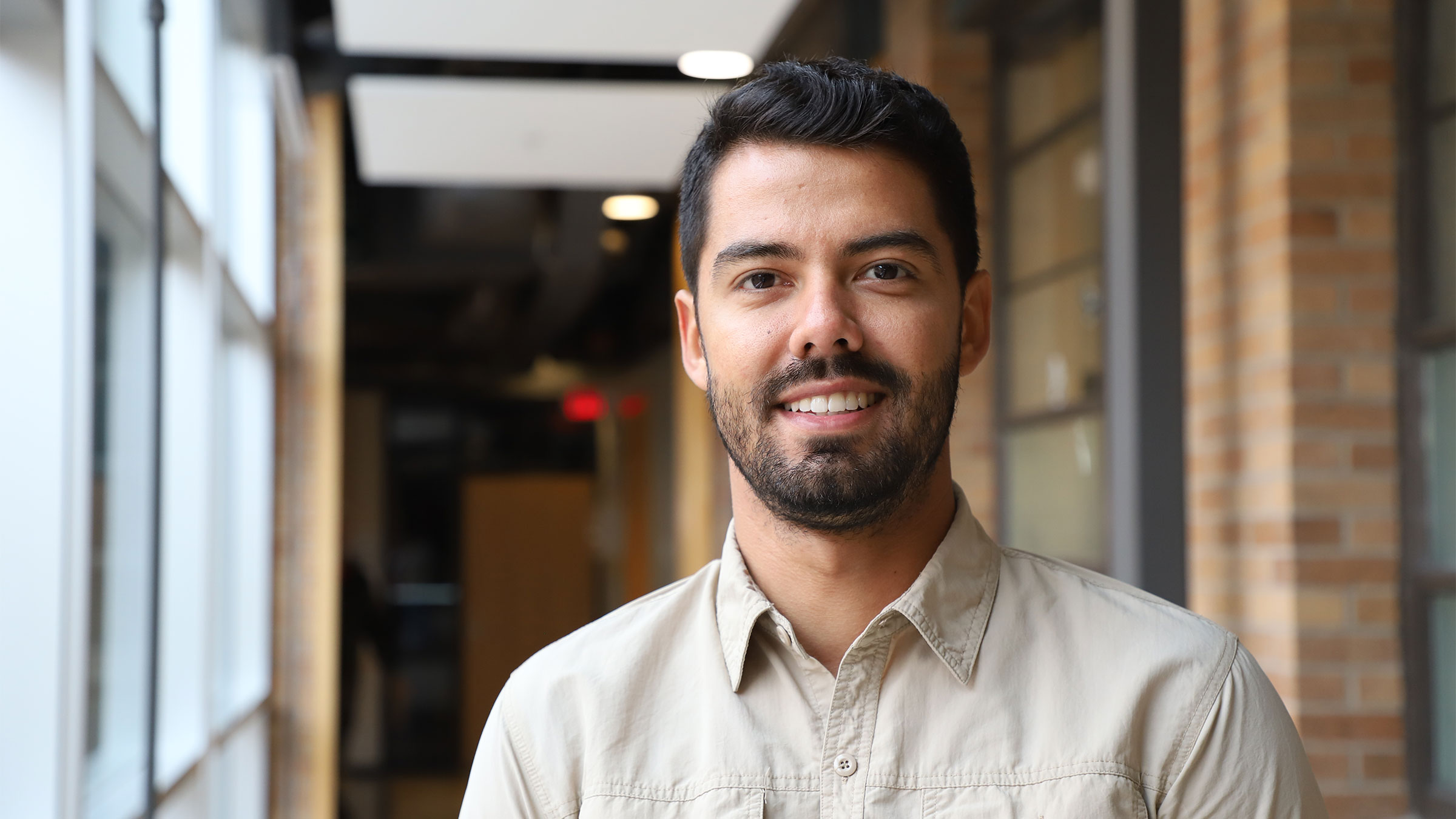
by Fran tenBensel Benne | Agronomy and Horticulture
The fall Agronomy and Horticulture seminar series begins with “Integrating Testing Optimization Frameworks into Soybean Breeding at UNL,” presented by Nebraska’s Arthur Bernardeli, a doctoral candidate in plant breeding and genetics in the Department of Agronomy and Horticulture, Sept. 4.
Bernardeli will highlight innovations to enhance soybean breeding efficiency. Topics will include optimizing multi-environment trials through implementing genomic-sparse testing designs, target population of environments and hub definitions; advancing drone-based phenotyping for crop maturity and developing software tools to simplify data analysis.
“Together, these approaches strengthen decision-making, improve resource allocation and accelerate genetic gain in soybean breeding,” Bernardeli said.
This seminar and all that follow will be in Keim Hall, Room 150 and streamed live.
All seminars are free and open to the public. Seminars will be in person on Thursdays, streamed live at 11 a.m. CST/CDT, and recorded unless otherwise noted. Refreshments will be served at 10:30 a.m.
Dates and topics for the rest of the series are as follows:
Sept. 11: “In the Name of National Security: Front Line Science for the Farm, Table and in a Tube,” Meghan Jackson, Director for Food, Agriculture & Environment Security, National Strategic Research Institute, University of Nebraska–Lincoln.
Sept. 18: “Decisions on the Prairie: How People Shape Rangeland Futures,” Gwendŵr Meredith, assistant professor, Department of Agronomy and Horticulture and School of Natural Resources, University of Nebraska–Lincoln.
Sept. 25: “Where to go with GMOs? The Next Generation of Agricultural Biotechnology,” Nathaniel Butler, Director, Plant Transformation Core Research Facility, assistant professor, Department of Agronomy and Horticulture, University of Nebraska–Lincoln.
Oct. 2: “Using Theories of Power to Navigate Persistent Problems: Exploring Cases of Climate-Smart Agriculture in California and Agricultural Diversification in the Corn Belt,” Brennan Radulski, postdoctoral research associate, Department of Horticulture and Landscape Architecture, Purdue University.
Oct. 9: “Beneficial Bug Bale Project: An Eloquent Strategy for Managing a 100-year Pest of Wheat,” Jeff Bradshaw, professor of entomology, Director of Plant Health, University of Nebraska–Lincoln.
Oct. 16: “Understanding Soil Water Holding Capacity for Effective Irrigation Scheduling,” Bruno Lena, water and cropping systems assistant extension educator and program area leader, Nebraska Extension, University of Nebraska–Lincoln.
Oct. 23: “Farmers as Science Advocates - Cases for Creative Engagement,” Rachael Whitehair, Director of Innovation & Stewardship, Nebraska Corn Board.
Oct. 30: “Innovation through Collaboration – Celebrating 120 years of UNL-USDA Partnerships,” Virginia Jin, research soil scientist, USDA
Nov. 13: “Utilizing Extension to Answer Turfgrass Science Questions for Nebraskans and Beyond,” Amanda Folck, assistant extension educator in turfgrass management, Department of Agronomy and Horticulture, University of Nebraska-Lincoln.
Nov. 20: Katherine Frels, assistant professor, Department of Agronomy and Horticulture, University of Nebraska–Lincoln.
Dec. 4: “Bridging Landscapes: Soil Health Assessment Across Farmer Fields and the Nebraska Sandhills,” S. Carolina Cordova, assistant professor, statewide soil health specialist, Department of Agronomy and Horticulture, University of Nebraska–Lincoln.
For questions, contact Tamara “Toma” Sukhova at tsukhova2@unl.edu, Agronomy and Horticulture Seminar Committee, Milos Zaric at mzaric2@unl.edu and Brian Rice at brice7@unl.edu, Co-chairs Agronomy and Horticulture Seminar Committee.
More details at: https://agronomy.unl.edu/news-events/seminars